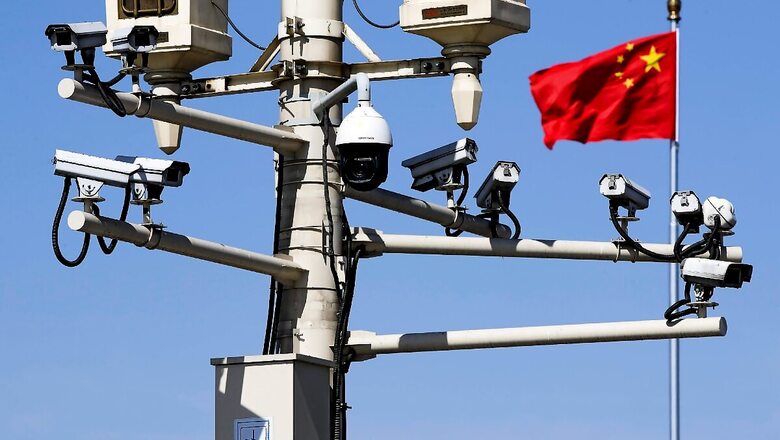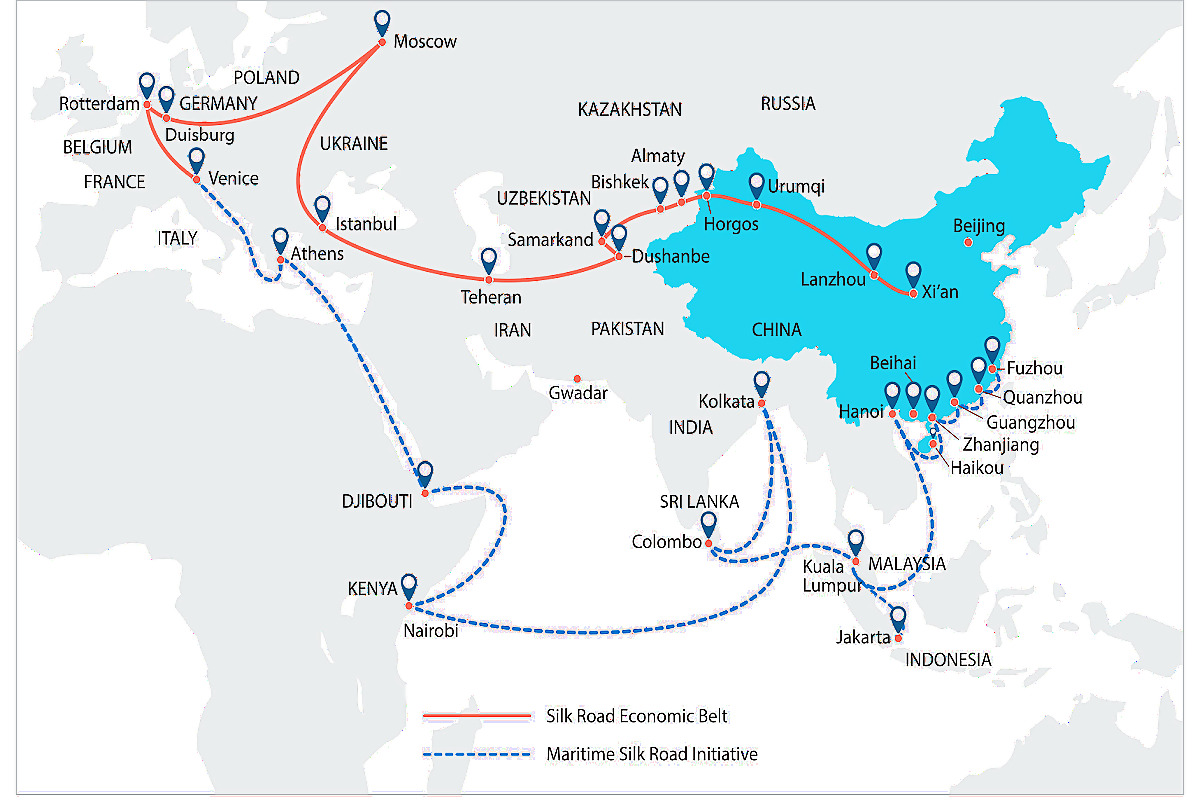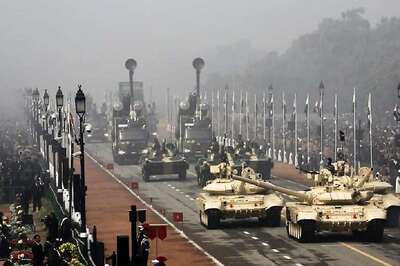
views
Chinese civilisation is one of the oldest on earth. Confucianism is a philosophy that testimonies the spirit of a secular-humanist belief system. It was a quasi religion or a social code.
Confucian philosophy was based on the value proposition that has believed human beings are the finest creature on this planet even though a section of people engage in immoral activities as they are not incubated through a strong moral value system. The Confucian school advocates that the society needs to follow a set of ethical codes and practices which in turn enable the citizens to lead a productive and peaceful life.
This would make a strong, ethical and prosperous state. Confucian ideology was propounded by Confucius, a Chinese philosopher (K’ung-fu-Tze, Kong Fuzi, “Master Kong”, 551-479 BCE) in the 6th Century BCE. In fact, Confucius is perhaps the most prominent philosopher in the historical and cultural discourses of China.
Unfortunately, Confucianism was completely discarded by the Qin Dynasty because it was indeed the anti-thesis of Qin policy. Shi Huangdi, the first emperor of the Qin Dynasty (221-210 BCE), established an authoritarian and suppressive regime, completely opposite with Confucian school of thoughts. He adopted stringent legalism school of thoughts and the state policy to strictly govern and control the common people in a mechanistic form of administration. Confucianism was bulldozed and wiped out from the pages of history during the pandemonium and chaotic phases, popularly doctrined as the ‘Burning of the Books and the Burying of Scholars’ (213-210 BCE).
Buddhism has a long history in China for shaping its culture and tradition. Buddhism can be regarded as the China’s oldest foreign religion. Buddhism is an enlightening system of beliefs and practices based on the principles and value propositions of compassion and non-attachment. It had originated in the 6th century BCE and later propagated to China by Buddhist monks from India during the latter part of the Han dynasty (ca. 150 CE). It took a century to be absorbed into Chinese culture. It fused with the Chinese indigenous Taoism and folk religion. Chinese Buddhism or Han Buddhism has shaped its culture in a wide spectrum of areas, including art, politics, literature and philosophy.
In the beginning of 20th century, China witnessed sporadic bubbles of communism which was reinforced and transformed into a regimented mainstream political ethos and ideology. Mao Tse-tung became the founding father of the People’s Republic of China (PRC). He ruled as the chairman of the Communist Party of China from its inception in 1949 until his death in 1976 by transforming the ownership of production from private hands to socialist control. However, Chinese communism, popularly known as Maoism, is markedly different from the classical ‘The Communist Manifesto’ written by Engles & Marx. Marxism–Leninism happens to be the collective ideology of the Chinese Communist Party (CCP), which is indeed a fusion of classical Marxism and Leninism (views of Vladimir Lenin).
The Communist Party of China has the “absolute leadership and control over” China’s People’s Liberation Army (PLA). It promotes the ‘one country, two systems’ for Hong Kong and Macau’ towards manifesting “complete national reunification”; through adopting ‘One-China policy’ and ‘1992 Consensus for Taiwan’ and so on. These are a few illustrations that embark as the roots of today’s aggressive expansionism strategy of the PRC.
China has a fair number of neighbours (14) with whom it shares its around 22,000-km land borders, namely North Korea, Russia, Mongolia, Kazakhstan, Kyrgyzstan, Tajikistan, Afghanistan, Pakistan, India, Nepal, Bhutan, Myanmar, Laos and Vietnam and the country is facing disputes on border and claims on territorial jurisdiction/sovereignty with 24 nations.
The PRC aims to unify an unsubstantiated large portion of Asia that at some point of time may have weak “historical precedence” dating back centuries. This essentially distracts the Chinese intelligentsia as well as the common people and on the contrary, PRC can draw attention and attract the world community. It is historically evident that the Chinese aggressive hunger for territory and power is ceaseless and led to heavy casualty and genocide and devastated the aspirations of regional and global peace.
President Xi Jinping is not only attempting to gratify the hunger of territorial claims in the South China Sea, but is expanding China’s connectivity project through the Silk Road Economic Belt (also known as the BRI) One Belt, One Road (OBOR) initiative and China–Pakistan Economic Corridor (CPEC) projects. The PRC is desperate to explore its strategic sea trade routes for strengthening its blue economy.

(Photo credit: byjus.com)
China has started its motivated agenda to bully its neighbours in the pandemic disaster so that these countries would be disturbed, deviated and derailed in delivering public goods and services to their citizens at this critical juncture. The PRC will not go for any full-fledged decisive battle other than fueling the fire of localised proxy wars to destabilise the neighbouring nations.
The Chinese think tank is administering accelerator (A), break (B) and clutch (C) strategy popular in car driving. The PRC executes its strategic and localised operations against neighbouring nations by its People’s Liberation Army (PLA) using accelerator mode till they envisage any adverse situation in the international diaspora. Then they adopt gradually withdrawal strategy (clutch mode). They talk about diplomacy, increase PR exercises to justify their positions. At the end, when they foresee no immediate hopes or increasing anti-China momentum among the global super powers, they switch over to break mode i.e. to abandon the operations completely waiting for an appropriate time to come.
The Galwan Valley episode and Chinese atrocities across the ‘Line of Actual Control’ of India are the tips of an iceberg. In recent times, India has overshadowed China in most of the forums i.e. on borders, global diplomatic arenas and implementation of dynamic state policies. All these strategic measures have created enormous frustrations among the dragon think tank. The propaganda, global PR activities and threat provocation tactics have been widely exposed and expunged before the world communities by politically, diplomatically and showcasing successful strategic border operations.
Recent kidnapping of five Indians from Arunachal Pradesh and followed by executing for free unconditional return is a gimmick to convince the world about its neighbourhood gesture, generosity and commitment to global peace. It could be a propaganda tactic and soft attempt to transcript a sympathetic message so that PRC may increase its cross-border atrocities in the regions. There is no doubt ‘aggressive expansionism’ is the ultimate philosophy of the highest leadership in China. It would be achieved by economic warfare as the central strategy which may be coveted under a variety of illusionary, deceptive and misleading approaches that may necessarily include dragon’s strategic defence atrocities across the borders. History repeats itself with its new forms, formats and outlooks.




















Comments
0 comment